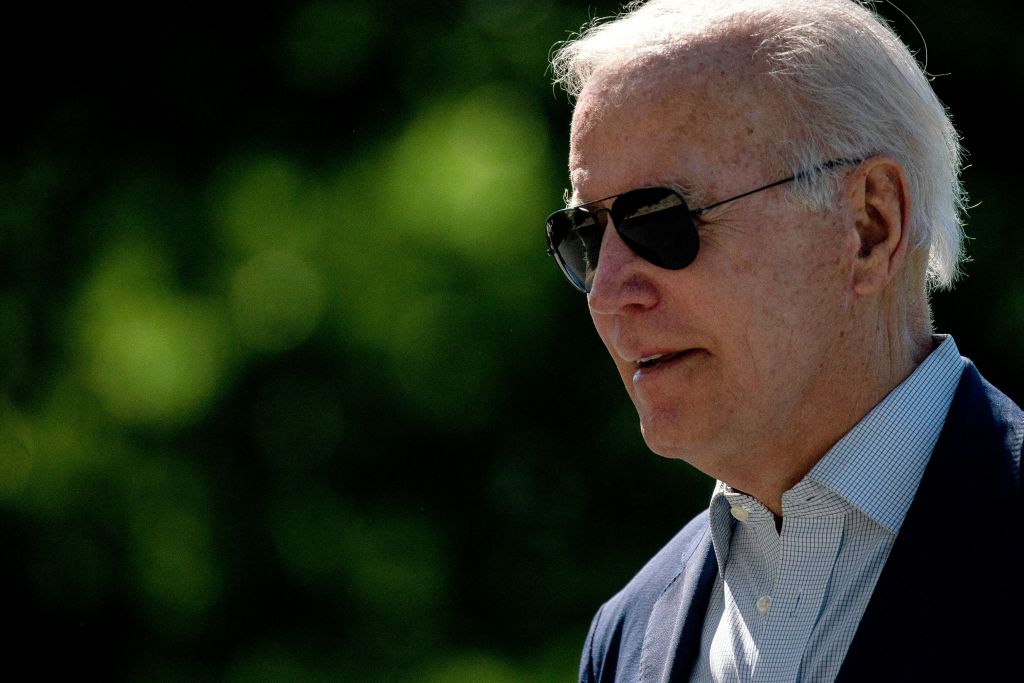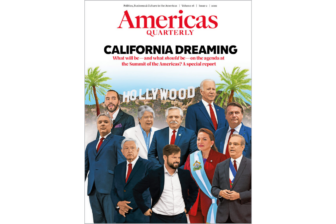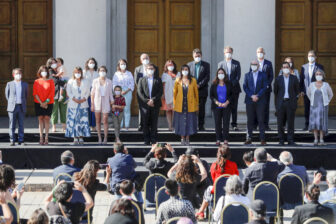Fellow leaders of the Americas,
Welcome to Los Angeles. Just your being here means a lot! (laughter) But seriously, thank you. It’s been a long road.
When we first convened this, the Ninth Summit of the Americas, some pundits called it a golden opportunity for the United States to finally give the nations of Latin America and the Caribbean the attention they deserve. To work together to repair the damage from COVID-19, which hit our countries harder than anywhere else in the world. To boost trade and investment, and provide an alternative to China. To reaffirm our support for democracy in a region where it is increasingly under attack.
But look—I’m not gonna lie to you. Not all of that is actually gonna happen this week.
I’d like to speak honestly and frankly about why.
The first reason is our domestic politics here in the United States. You guys are gonna hear a bunch of malarkey this week about how my government doesn’t really care about your part of the world. But this mostly isn’t about you, it’s about us. We just can’t get our stuff together on anything in Washington these days, particularly on the issues that could actually make a difference in Latin America.
Take migration. In a sane world, we would pass a guest worker program that would allow the citizens of your countries to come work here in a legal and humane manner, and provide a path to citizenship for the millions who are already here. That would help us address a labor shortage that is only gonna get worse in the next few years, as the United States’ population starts to look more like me. (laughter)
We could also pursue new deals for trade and investment. OK, maybe not the ambitious projects of yesteryear, like the FTAA or the TPP. But there’s middle ground. Unlike the Chinese, I can’t order our companies to invest in Latin America just because I think it’s in the U.S. interest. That’s not how our system works. If we want “near-shoring,” if we think our supply chains should become more interconnected to generate good jobs, and deal with a more uncertain world in Asia and Europe, then our governments need to create rules and incentives for that to happen.
It doesn’t sound so hard, right? And polls show the U.S. public is pretty much on board. Even after all that “America first” stuff, six in 10 Americans still say trade is a good thing. Hell, I was one of TPP’s biggest supporters when I worked with Barack. Migration—now, that’s harder. But we had a poll not so long ago showing Americans wanted more immigration, not less, for the first time in generations.
But you guys know the deal. We can’t even do the easy stuff anymore. I mean, look at our debate on guns! Despite the polls, neither the Democratic nor the Republican party leaders have the guts to stand up for trade anymore. Barack couldn’t get immigration done, even when he was popular. Neither could Bush. And who wants to listen to a U.S. president stand on a stage and lecture anybody else about democracy, after what happened with our last election?
Now, I’m not trying to wash my hands, OK? The buck stops here! But—I probably shouldn’t say this—the truth is I really can’t afford a fight with the unions or the left wing of my party over trade right now. Hell, I may not be able to get anything passed after the November midterms. But before you get too frustrated with me, try to recall what my predecessor’s big idea for engaging with Latin America was. Do you remember? It was a goddamned wall! So try to keep some perspective.
Before I finish, let me say a few things about you—some difficult truths among friends.
Look, I love Latin America. Visited 16 times when I worked with Barack. There’s so much more we could do together. But you’ve gotta help us out.
You keep saying you want more American investment. In private, almost all of you say you’d rather have us than the Chinese. But again, that’s not really up to me. The U.S. government can invest a little in places like the Northern Triangle and Haiti—although even that’s been hard. We can do a few new things through the development banks. But, folks, there’s no Marshall Plan coming for Latin America. We don’t have the money for it, not with our deficits after COVID. And the truth is, even if we did, most of your countries are middle-income now. Every time I hear somebody in Argentina or Brazil talk about a Marshall Plan, I think—Man, you guys say we’re stuck in the past?
No, most U.S. investment is going to come from our companies. And what they say in private is that Latin America is at risk of becoming irrelevant. Too little economic growth, too much bad politics. They see the potential—green energy, technology, skilled labor. But they also see that money is just gushing out of many of your countries right now, even the ones that used to do well, like Chile and Colombia. They see some of you in this room undermining your institutions and your democracies. And so they’re sitting on the sidelines, waiting.
This week was a chance to win some of those folks over. We’ve got CEOs here in LA with us, the big Silicon Valley companies, the banks. But instead, many of you decided to use this summit to show that Uncle Sam can’t make unilateral decisions for the region anymore, that this isn’t our “backyard.” That’s what this whole inviting Cuba thing was really about for most of you. And OK, we heard you, and we could have handled ourselves better. But it’s kinda taken the air out of the room.
But here’s the deal—let me try to end this on a positive note. We’ll get some things done this week on climate change, on healthcare. We’ve got a few surprises up our sleeves. And in the end, I’ll tell you a secret: These summits don’t really matter that much. Oh, the pundits will insist otherwise, and call it a disaster and a sign of declining U.S. influence and all that. But what really matters is what happens after we leave LA. And like I said—a lot of it’s not even up to us.
So relax. Have some street tacos, enjoy the California sun. God bless.








